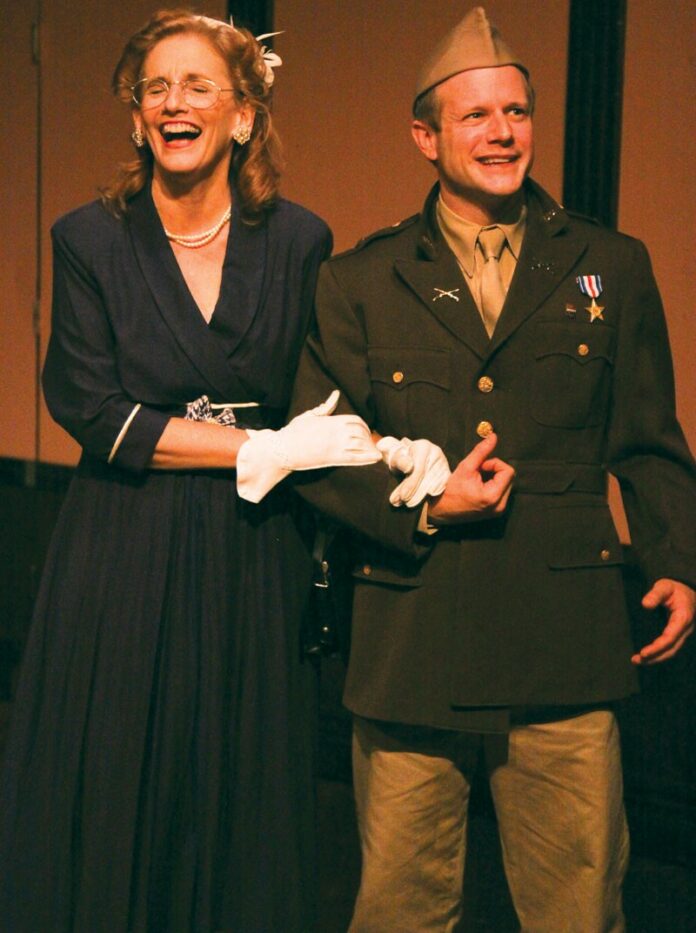Petaluma’s Cinnabar Theater, celebrating its 40th season this year, has established a solid reputation as a creator of new works and premieres. And in celebration of their anniversary, they’ve done it again.
The world premiere of So Nice to Come Home To, by Richard B. Evans and Kate Hancock, is a commission by Cinnabar cofounder Jan Klebe. Based loosely on a pair of one-acts by J. M. Barrie, the setting has been moved from the First World War to the second. With 19 brand-new songs, written in a variety of styles, the show covers a lot of musical ground—perhaps a little too much ground.
Kate Downey (in a delightfully layered performance by Elly Lichenstein) is a middle-aged woman living in New York City in 1944. Desperate to feel as much a part of the war effort as those with sons fighting overseas, she’s invented a son named Kenneth and brags about him to her friend Jean (Valentine Osinski). When a real soldier named Kenneth Downey appears (Broadway veteran Michael McGurk, thoroughly charming), the two form an uneasy bond, each with their own reasons to pretend they are mother and son.
Director Ann Woodhead knows how to find all the colors and moods in a piece like this. She nicely paces the humor and sweetness of the play, without missing the underlying sadness and loss that underscores nearly every scene.
The production also benefits from the magnetic presence of Michael Van Why, as a stumbling butler and vivacious Broadway star; the stiff but strong-voiced Bill Neely as Kate’s businessman ex-husband; and an ebullient Stephan Walsh as a military organizer.
There is an appealing sense of historical perspective in the story, with plenty of rich subtext bubbling away beneath the surface. Still, it rambles a bit, and there are a few too many songs, some of which slow down the action instead up propelling it forward. Many lean toward the operatic, and melodically, these tend to be the least memorable.
The best songs here are those steeped in the sounds of the 1940s, from catchy pro-war jingles on the radio (“We’ll Never Give Up”) to USO novelty tunes (“The U.S. Army Band,” “Uncle Sam Wants You!”) to campy Broadway numbers (“Carmen Miranda,” “Rosie the Riveter”). The dialogue is straightforward and workmanlike, taking the characters through the scenes effectively enough, but a little too lacking in flash to equal the best of the songs. As far as premieres go, So Nice to Come Home To feels like a work-in-progress, which, of course, it is.








